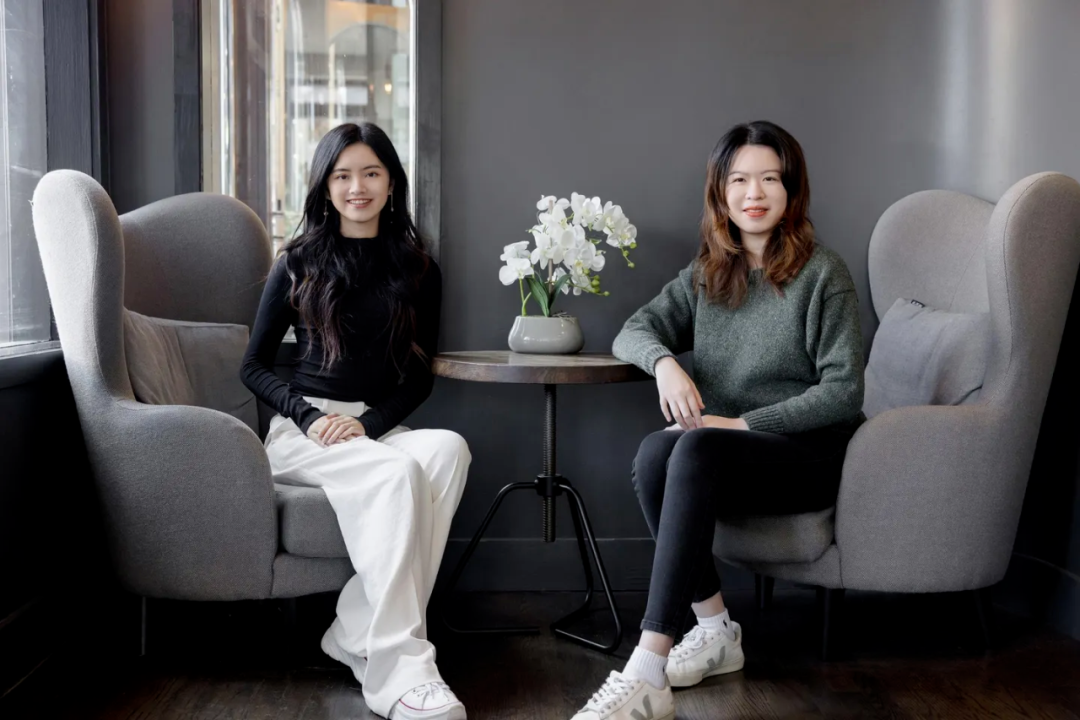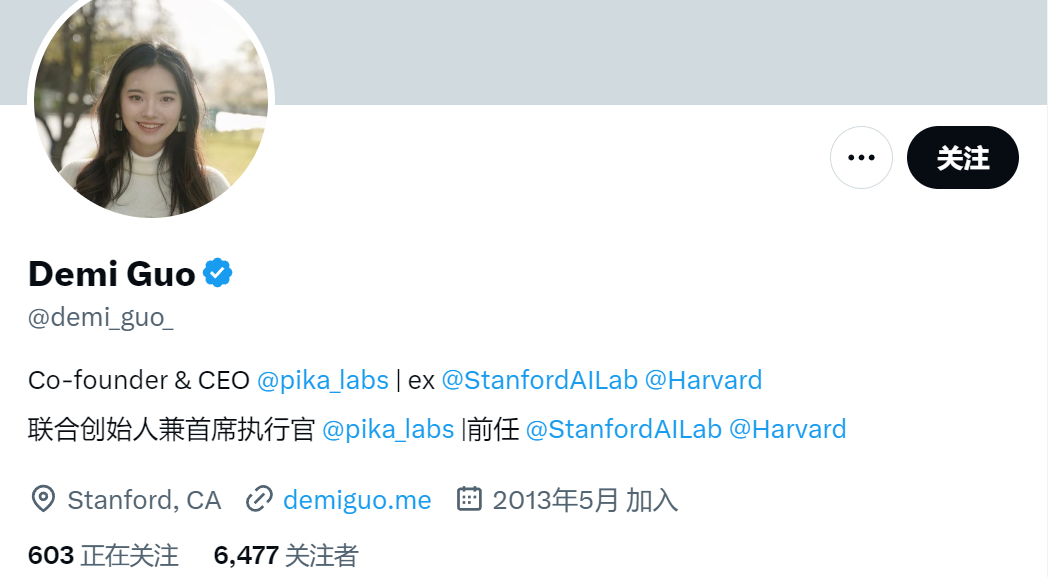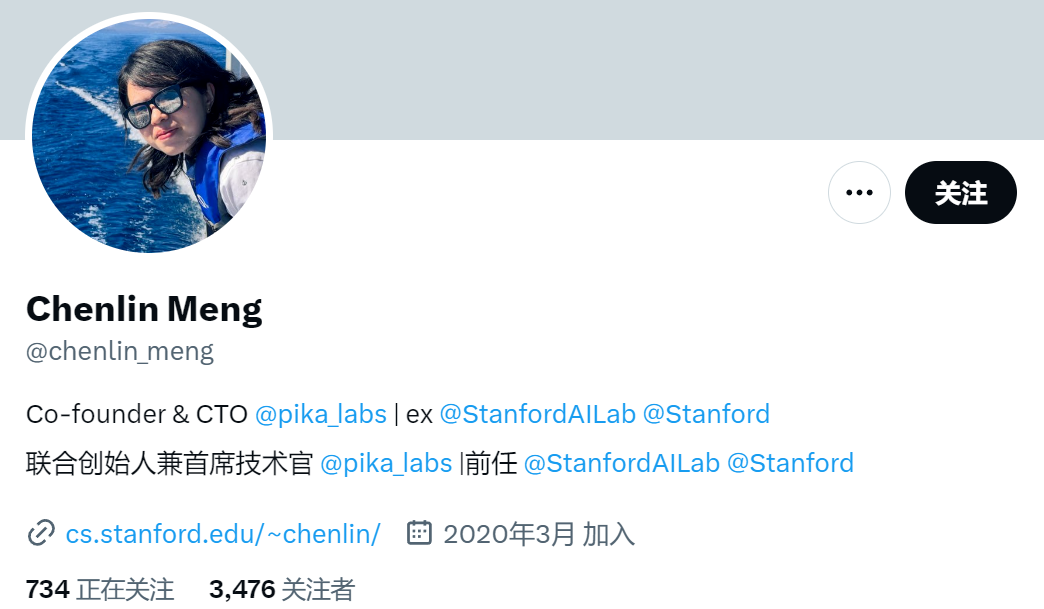Source: 青投创新

Image Source: Generated by 无界 AI
Not long ago, a AI-generated video tool called Pika quickly gained popularity.
This AI video tool can not only convert text into video, but also create stunning 3D animations from text.
In addition, it can also shoot advertisements. It's worth noting that a traditional advertisement usually requires more than ten people and several days to complete, but Pika can accomplish it with just one person in less than a day.
Although we have been amazed by AI such as ChatGPT and Runway more than once, when we see such a powerful tool, we are still surprised and can't close our mouths.
This AI-generated video tool, known as the rival of Runway, was developed in April of this year and completed three rounds of financing in a short six months, with a total financing amount of 55 million US dollars.
It is worth mentioning that the two creators behind Pika are both Chinese women—Demi Guo (CEO), a former doctoral student at Stanford University's Artificial Intelligence Laboratory, and Chenlin Meng (CTO).
01 Dropping Out of School to Start a Business
Last winter, Demi Guo (郭文景) and several classmates from the Stanford University computer science doctoral program wanted to use AI to make a movie and participate in the first "AI Film Festival."
The winner would receive a $10,000 prize, and the sponsor was the AI-generated video startup company Runway, with a market value of 500 million US dollars.
Unexpectedly, although these highly skilled doctoral students spent a lot of effort on professional tools such as Runway and Photoshop, they did not make the cut. The final winner was a professional creative.
Demi Guo said, "Despite recent breakthroughs in AI, applying it to video production is still very cumbersome for laymen."
"It doesn't look that good. I'm very frustrated."
Why can't there be a video generation tool tailored for non-creative professionals, allowing ordinary "laymen" to easily create and become the directors of their own stories?
Based on this, in April of this year, Demi Guo and Chenlin Meng dropped out of Stanford University and founded Pika Labs to develop an AI video generator that is easier for ordinary people to use.

Left: Demi Guo, Right: Chenlin Meng
Dropping out of school to start a business is not uncommon at Stanford, and Demi Guo and Chenlin Meng have enough confidence.
It is reported that Demi Guo graduated from Hangzhou No. 2 High School and was admitted to Harvard University in advance.
Her parents are both Ph.D. holders from the Massachusetts Institute of Technology and Stanford University in computer science. Before entering Stanford University, Demi Guo became the youngest full-time employee of Meta AI research in her sophomore year and won many international software development awards.

Chenlin Meng has published over 28 research papers in the past three years, including Denoising Diffusion Implicit Models (DDIM).
DDIM is now the default method for content generation and has been widely used in OpenAI's DALL-E, Google's Imagen, and Stability AI's Stable Diffusion.
Her professional experience at Google Brain and Stability AI further solidified her influence in the field of artificial intelligence research.

The strong alliance of the two computer experts sparked a brilliant spark.
Since then, about 500,000 people have tried Pika, and now use it to create millions of new videos every week.
The videos generated by Pika have gained significant exposure on social media platforms. Only on TikTok, the #pikalabs tag has attracted nearly 30 million views.
This explosive growth of interest has driven Silicon Valley investors crazy, and this startup with only four people has completed three rounds of financing in a short period of time, raising a total of 55 million US dollars.
The first two rounds were led by former GitHub CEO Nat Friedman, and the most recent round—$35 million Series A financing—came from Lightspeed Venture Partners.
According to Forbes, Pika Labs is now valued at 200 million to 300 million US dollars.
02 The Birth of Pika 1.0
Yesterday, the "Internet celebrity" Pika reached a new milestone—Pika 1.0 was officially launched.
This is a major product upgrade, including a new AI model that can generate and edit various styles of videos, such as 3D animation, anime, cartoons, and movies. It is also easier to use.
Let's take a look at what surprises Pika 1.0, backed by hundreds of GPUs, can bring us.

In Pika 1.0, very close and vivid videos can be generated through text. Not only that, using images or even videos, they can be "reprocessed." With a variety of styles to choose from.
To some netizens, the coolest thing about it is that it allows you to upload your own video clips and use generative AI to edit and reimagine scenes. "This alone makes it one of the most useful AI video tools."
In addition, the new model can also provide more fine-grained editing and control of the generated content—adjusting the aspect ratio and perspective of the video, changing clothes, adding or removing items (such as putting sunglasses on a robot), and more.

User X @bee_avatar immediately went to experience Pika 1.0 after its release and created the cute little black rabbit below. The user said the production process was quick, and those who experienced it would understand.

Many netizens have already found the original videos they made and want to see if there will be more miracles if they are completed using Pika 1.0. However, most people are still waiting eagerly in line.
Pika's official response ensures that everyone will be able to use the new product smoothly.
03 Empowering Everyone with Creativity
"Our vision for Pika is to enable everyone to become the director of their own story and to unleash the creativity in each of us," Pika Labs wrote on their official blog.
Unlike powerful competitors in this field (such as Adobe and Runway), "we are not aiming to create products for film production," CEO Guo said in an interview with Forbes. "We are trying to do more for everyday consumers—people like Meng and me, who are essentially creators but not so professional."
In the early stages, Pika focused on generating anime content. Guo stated that given the significant lead of well-funded companies like Runway and Stability AI, taking on the task of AI-generated real videos would be too challenging.
At the same time, the publicly traded company Adobe, with a market value of 280 billion US dollars, is rapidly adding AI capabilities to its Creative Suite.
But the rapid pace of development by Guo and Meng surprised investors and even themselves.
Former GitHub CEO Nat Friedman, who led the first two rounds of investment in Pika, was deeply impressed by this.
At one point, Friedman suggested adding a way to embed text into videos. He received a text message at 3 a.m. saying that this feature was ready.
Friedman was initially shocked, but soon realized that this "very intense" pace was a typical characteristic of the team. He admitted, "This is also one of the reasons that prompted me to make the next round of investment."
Michael Mignano, a partner at Lightspeed who invested in September, believes this is a key advantage for Pika: "For a startup, the biggest weapon and the biggest advantage is speed, and this is indeed the fastest team I have seen."
Currently, Pika has leased several hundred GPUs—some from Friedman's Andromeda cluster, and some from other cloud service providers—to build the new version of the AI model that made its debut today.
With the new funding, Demi Guo plans to expand Pika's team to about 20 people next year, most of whom will be engineers and researchers.
Although the product is currently free, profitability is not the primary goal. She stated that the company may eventually introduce a tiered subscription model (paying more for more features) aimed at consumers.
Guo also plans to use this to differentiate Pika from its larger competitors.
"We are not trying to build products for film production; we are doing something more suitable for everyday consumers—like me, a creator, but not so professional."
Demi Guo said that if a tool like Pika had been available a year ago, her team at Stanford might have had a fighting chance at the AI Film Festival.
"I think it would definitely have been a big help," she said.
免责声明:本文章仅代表作者个人观点,不代表本平台的立场和观点。本文章仅供信息分享,不构成对任何人的任何投资建议。用户与作者之间的任何争议,与本平台无关。如网页中刊载的文章或图片涉及侵权,请提供相关的权利证明和身份证明发送邮件到support@aicoin.com,本平台相关工作人员将会进行核查。




